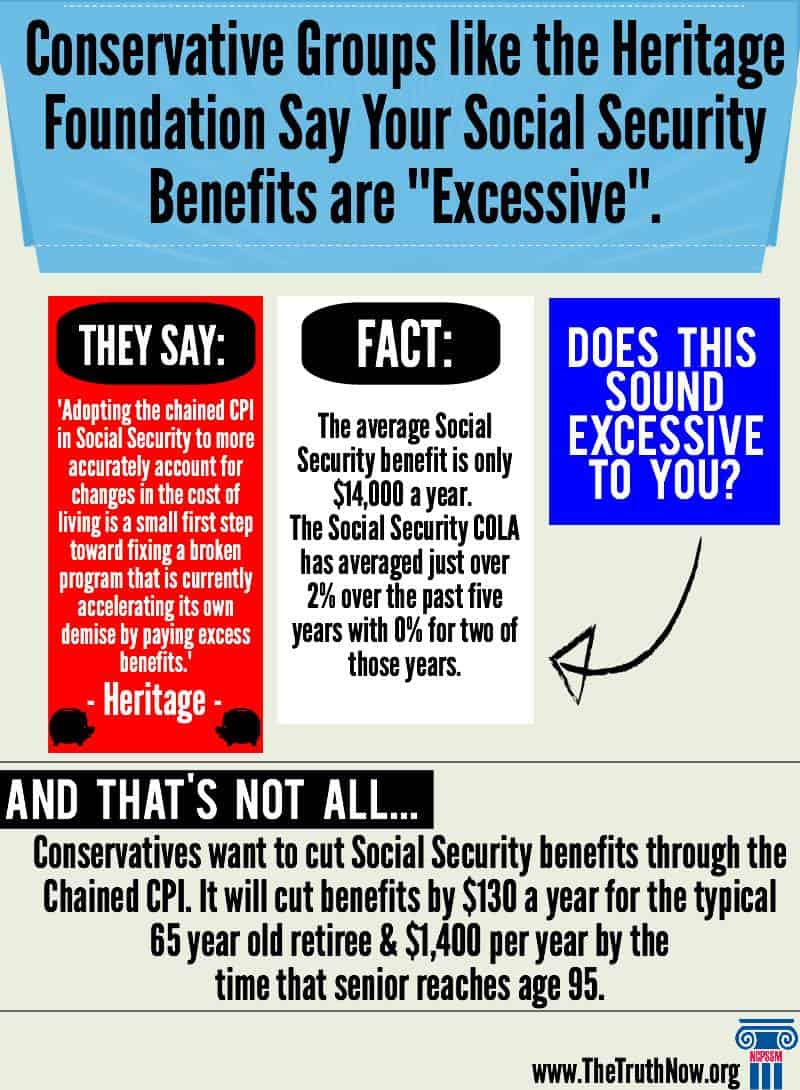The Kaiser Family Foundation has prepared a new state-by-state snapshot of poverty among seniors which is a must-read for Washington politicians who might buy into the claim by some, like the Heritage Foundation, that Social Security benefits are “excessive”. According to Heritage:
“Adopting the chained CPI (Consumer Price Index) in Social Security to more accurately account for changes in the cost of living is a small first step toward fixing a broken program that is currently accelerating its own demise by paying excess benefits.”
The AARP Bulletin has the terrific summary of the Kaiser Senior Poverty report and what it means if Washington cuts Social Security benefits by adopting the Chained CPI.
Is Poverty Among Older Americans Undercounted?
Posted on 05/24/2013 by Tamara Lytle
Poverty levels are much higher for older Americans when you factor in how much they need to spend on health care, the Census Bureau has found.
Factoring in health care costs changes poverty statistics
While 9 percent or so of all Americans 65 and older were below the official poverty threshold in 2011 ($10,788 for an individual), 15 percent were below an alternative threshold that takes into account spending on health care.
The alternative measure also takes into account variations in the cost of living, taxes, whether a person receives food stamps, and whether a person is a homeowner, for example.
Now comes a report from the Kaiser Family Foundation that takes a state-by-state look at the alternative threshold (formally known as the “supplemental poverty measure”).
It finds that the share of older Americans living in poverty is higher in every state under the alternative measure, and at least twice as high in 12 states: California, Colorado, Connecticut, Hawaii, Massachusetts, Maryland, Minnesota, New Hampshire, New Jersey, Nevada, Wisconsin and Wyoming. In five states (California, Hawaii, Louisiana, Nevada, Georgia and New York) and the District of Columbia, roughly one of every five residents 65 and older are living in poverty, the report says.
Politico notes that there’s a political context to the Kaiser report: “The Kaiser brief says it’s meant to provide context for the many spending proposals being tossed around — particularly those that focus on shifting costs in Medicare and paring down Social Security benefits. It also notes that adopting ‘chained CPI,’ which slows the growth of Social Security benefits, would most likely make for higher poverty rates for older seniors across both census measures.”
Max Richtman, the president of the National Committee to Preserve Social Security and Medicare, said it’s proof that the safety net needs strengthening. “The Kaiser study validates that – for a larger share of seniors – the death of a spouse or serious illness is all it takes to push many older American into the indignity of a poverty-ridden old age,” he says. “That’s why we continue to tell lawmakers that it is wrong to cut benefits for the oldest and most vulnerable Americans who would be least able to afford it. In fact, the decline of employer-sponsored retirement, and the recession’s erosion of retirement savings, mean that the percentage of Americans who depend on Social Security for most of their income will only continue to grow.”



